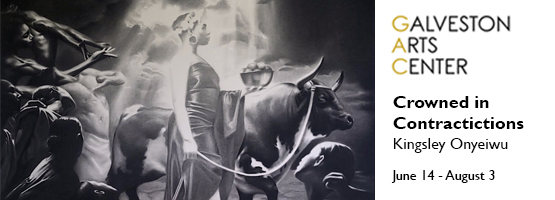The Dallas Opera will treat its audiences next season to two of opera’s all-time favorites, but the real news belongs to the season’s other two slots: They’ll hold a pair of landmark works the company has never staged.
What’s leading Dallas Opera to take the plunge?
“The thing about it is, even though they have never been done in Dallas, they are well-known pieces,” says Ian Derrer, the company’s CEO. “From my perspective, they were conspicuously absent from our repertoire. … It was just a no-brainer in a lot of ways.” And with Verdi’s La Traviata and Puccini’s La Boheme as bookends, the four-opera schedule “seemed like a wonderful season.”
Pelleas, a story of ill-fated attraction between a mysterious young woman and two half-brothers who fall in love with her, springs from a play by the French author Maurice Maeterlink. It depicts the force of love and jealousy, but it also relies on the power of suggestion. In one scene, a child asks a passing shepherd where he’s taking his sheep, whose bleating suddenly stops as they move out of sight; the shepherd says only that they aren’t going home. Debussy’s iridescent music evokes the surge of human passions as tellingly as the gloom of a cave or the shimmering waters of a well
Baritone Benjamin Appl, who performed Franz Schubert’s song cycle Winterreise in a recital for Dallas Opera in 2022, will come back to portray Pelleas (Nov. 8-16). The Schubert program revealed that Appl is “a captivating performer,” Derrer says, adding that his “energy and attention to language and nuance” should galvanize Pelleas, too.

1 ⁄6
Lauren Snouffer; Photo courtesy of the artist.

2 ⁄6
Madison Leonard; Photo by Gillian Riesen.

3⁄ 6
Yaritza Véliz; Photo courtesy of the artist.

4 ⁄6
Christian Gerhaher; Photo by Gregor Hohenberg.

5 ⁄6
Sylvia D’Eramo; Photo courtesy of the artist.

6 ⁄6
Benjamin Appl; Photo by David Ruano.
The veteran bass Sir Willard White will make his Dallas Opera debut as Arkel, the brothers’ elderly father and the story’s sadder-but-wiser moral compass. Director Jetske Mijnssen’s production, a collaboration between Dallas Opera and Germany’s Bavarian State Opera, zeros in on “the heart of this family drama, and the complexities of this particular family,” Derrer says. Ludovic Morlot, former leader of the Seattle Symphony, will conduct.
Orpheus and Eurydice (Feb. 7-15) retells the ancient myth of the musician who travels to the Underworld hoping to bring back his deceased wife. Thanks to Gluck’s concise, graceful melodies and lucid orchestral textures, the music marks a sharp departure from baroque-era floridness.
Because Gluck crafted two versions of the score—one in Italian, the other French, setting Orpheus’ music in different keys—the opera is something of a chameleon, allowing baritones, tenors, countertenors and mezzo-sopranos all to have a crack at playing the hero. Dallas Opera is opting for the Italian version, and Orpheus will be a countertenor: Hugh Cutting, a young Briton who will debut in Dallas after doing so at Italy’s La Scala.
Soprano Madison Leonard, who played Gilda in Dallas Opera’s 2022 production of Verdi’s Rigoletto—and “brought the house down,” Derrer says—will return as Eurydice. Director-designer Joachim Schamberger’s production focuses “on the power of music to bring people out of the depths of despair,” Derrer adds, and Dallas Opera music director Emmanuel Villaume will conduct.
The season will open with La Traviata (Oct. 18-27). The young Chilean soprano Yaritza Véliz will make her Dallas Opera debut as Violetta, the courtesan who seizes a chance at love even as she struggles against illness and social convention.
“I remember hearing this buzz: ‘You’ve got to hear this soprano.’ She came and sang for us, and I said yes right away,” Derrer recalls. In Véliz, he sees “an incredibly gifted artist. Everything jumps off the page with her. She’s an absolute natural in so many things—dramatically natural, and her voice seems to be boundless in what it can do.”
Tenor Xabier Anduaga, a winner of the Operalia competition founded by Placido Domingo, will play Violetta’s paramour, Alfredo. The young Spaniard boasts “a voice that has incredible range, and an especially beautiful high register,” Derrer says, adding that Anduaga is “a fine actor” to boot. The production, new to Dallas, is by stage director Louisa Muller and designer Christopher Oram, the team behind Houston Grand Opera’s 2022 revival of Ethel Smyth’s The Wreckers.
“I think it will prove to have an incredible energy,” Derrer says. “In a piece like La Boheme, you can go and find tried-and-true casts that have performed it together and are popular right now. But … I try to emphasize the up-and-coming generation. This (cast) is 100 percent indicative. These people are going to be singing these roles for a long time. But you’ll hear them do it together in Dallas first.”
For the annual Titus Family Recital, on the other hand, the company will turn to a more seasoned artist: baritone Christian Gerhaher, whose program will feature songs by Robert Schumann (Jan. 26). The German singer “drinks from the same cup of tradition” as Appl, Derrer says.
“Both of them make masterful use of text and color and nuance,” Derrer comments. With Gerhaher, “you have age and experience … that brings a poignancy that is only revealed through time.” And pianist Gerold Huber, the singer’s longtime collaborator, adds another rare element.
“It’s not very often that you get a musical partnership that has been decades in the making,” Derrer says. “When these two make music together, it’s something that has been honed through years and years. It becomes instinctual.”
—STEVEN BROWN





